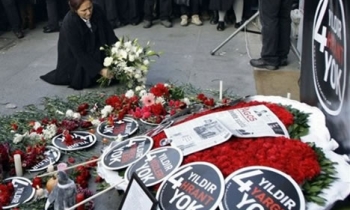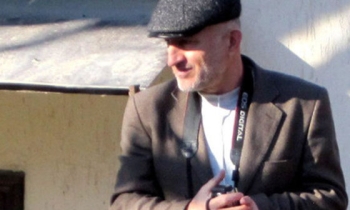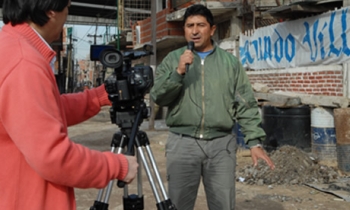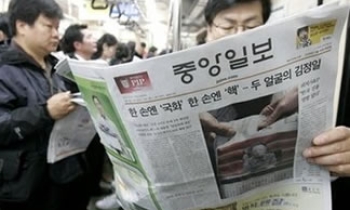There has been a spate of arrests, detentions, and trials of journalists in Vietnam, according to the Committee to Protect Journalists (CPJ).
Somsak Khunmi, a long-time news assistant and contributor to Chan Troi Moi (Radio New Horizon) was sentenced today to nine months in prison and three years probation following a six-hour trial Tuesday last on terrorism charges at the People’s Court of Ho Chi Minh City.
He was first detained on November 17 along with French-Vietnamese reporter Nguyen Thi Thanh Van and a group of political activists associated with the pro-democracy Viet Tan (Vietnam Reform Party). At the time, he was working as a sound recordist for Radio New Horizon. Nguyen was released in December after international pressure.
Authorities say Somsak, a Thai citizen whose Vietnamese name is Nguyen Quoc Hai, attempted to distribute pro-democracy fliers in violation of Article 84, Section 3 of Vietnam’s penal code. CPJ has expressed concern that his detention had more to do with his and Nguyen’s reporting on an earlier protest held in Ho Chi Minh City by aggrieved farmers who had been pushed off their land by state authorities.
On Monday last, Nguyen Van Hai and Nguyen Viet Chien, who work respectively for the Vietnamese-language daily newspapers Tuoi Tre (Youth) and Thanh Nien (Young People), were arrested and imprisoned. The two local reporters were instrumental in breaking news in 2006 about the “PMU-18” scandal, in which senior transport ministry officials allegedly embezzled state funds to wager on international football matches.
The officials eventually stepped down. At the time, the case was seen as a possible indicator of the Vietnam government’s acceptance of a freer role for the media. Now, the two journalists have been charged with “abuse of power” and could be held for as long as four months while authorities conduct their investigations, according to news reports.
A third case of concern is the April 29 arrest of a US citizen, Le Hong Thien, who was apprehended by security police in Ho Chi Minh City while covering the Olympic torch relay. Thien is the US-based editor of the Gia Dinh, according to a joint statement released by both publications. He is also a contributor to the Japan- and US-based Chan Troi Moi, which is broadcast on AM and heard throughout Vietnam.
According to the publications’ statement, Thien has been interrogated for several days by police and is currently being held under house arrest at his brother’s home in Saigon. Police have also confiscated his passport even though no formal charges have been lodged against him.
Time magazine had some other details:
That's not to say the press is blameless. Several senior journalists have raised questions about the ethics and reporting standards of Vietnam's fledgling media. Veteran journalist Huy Duc condemned the arrest of his colleagues, but also noted in his popular blog that the careers of at least two officials in the Communist Party were damaged because of unfounded allegations raised by the press in their PMU18 coverage. "A lot of information printed in newspapers at the time had been made up," Duc claimed, adding that reporters were used by party sources to destroy their political opponents. Duc blamed journalists for not verifying the accuracy of their information. Says Nguyen Van Phu, managing editor of the English-language Saigon Times: "Many so-called investigative stories were in fact written based on information fed to the reporters on purpose."
The newspapers of the arrested reporters are urging government investigators to go after the police and officials who provided spurious information. That's unlikely to happen. At best, the arrests will encourage reporters to "be more careful to double-check sources and do adequate attribution," says Phu of the Saigon Times. At worst, the incident will discourage media coverage of corruption scandals in the future—which won't help Vietnam's leaders in their anti-graft campaign. McHale calls corruption a "cancer" that threatens to eat away at the country's economic gains. "Billions of dollars of FDI (foreign direct investment) is going to go away" if the problem is not attacked and corrupt officials remain unexposed, McHale says. "There is an interest in having a press that addresses these issues."









